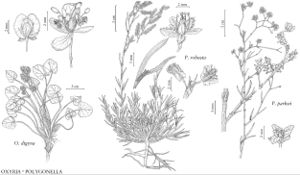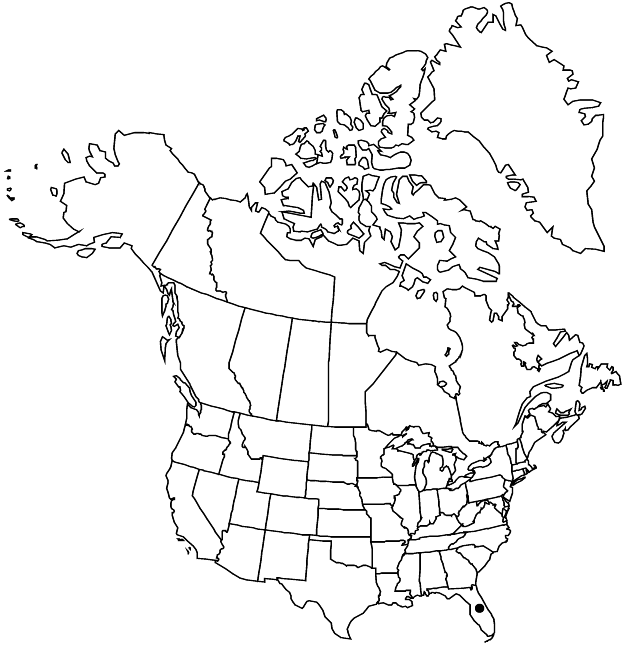Polygonella robusta
Brittonia 36: 43. 1984.
Herbs, annual or perennial, gynomonoecious, 5–11 dm. Stems erect, usually branched at base, sometimes simple, glabrous or sparingly scabrous on angles distally. Leaves persistent; ocrea margins ciliate; blade linear, (10–)25–43(–69) × 1.2–2.5(–3) mm, base barely tapered, margins hyaline, apex acute to acuminate, glabrous. Inflorescences (10–)20–50(–60) mm; ocreola encircling rachis, only the base adnate to rachis, apex acuminate. Pedicels spreading in anthesis and fruit, 0.3–1 mm, much longer than subtending ocreola. Flowers bisexual or some pistillate, these usually distal; outer tepals loosely appressed in anthesis and fruit, pink to white, drying orange, ovate, 1.7–4.5 mm in anthesis, margins erose; inner and transitional tepals pink to white, drying orange, loosely appressed in anthesis and fruit, oblong, 1.8–3.8 mm in anthesis, margins deeply fringed; filaments monomorphic; anthers pink; styles and stigmas 0.7–1.5 mm in anthesis. Achenes usually included, sometimes exserted distally, yellow-brown, 3-gonous, 1.8–2.6 × 1–1.5 mm, shiny and smooth proximally, dull to shiny and minutely roughened distally. 2n = 32.
Phenology: Flowering Jul–Dec.
Habitat: Sandy roadsides, waste places, scrub
Elevation: 0-60 m
Discussion
Polygonella robusta is closely related to P. fimbriata and has been treated as a variety thereof. Differences in morphology and distribution provide a basis for treating the two taxa as separate species (G. L. Nesom and V. M. Bates 1984).
Selected References
None.

